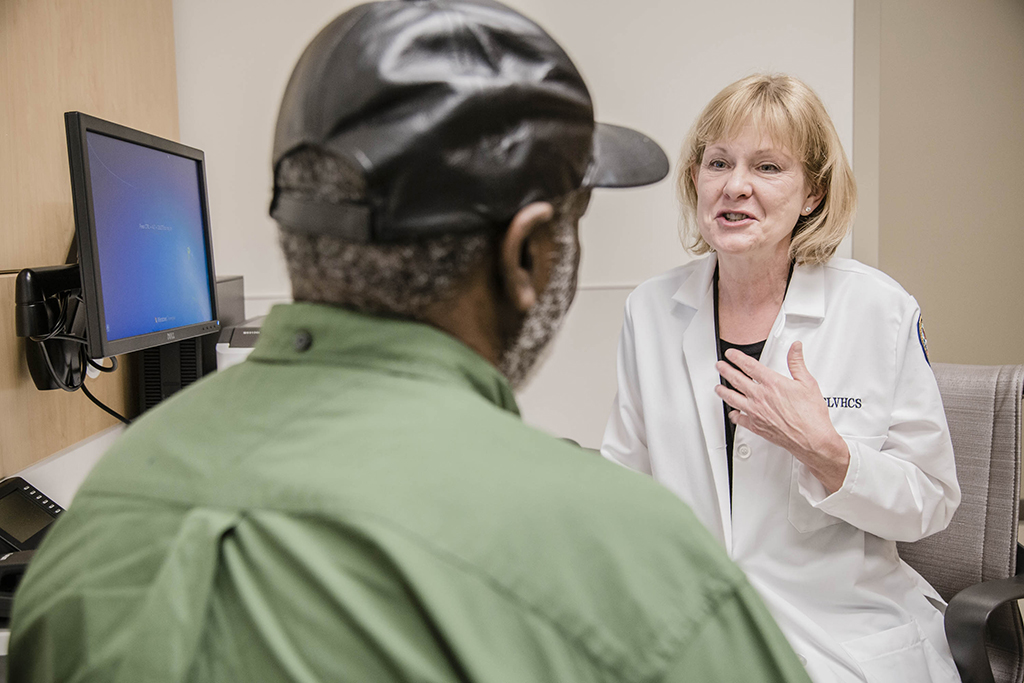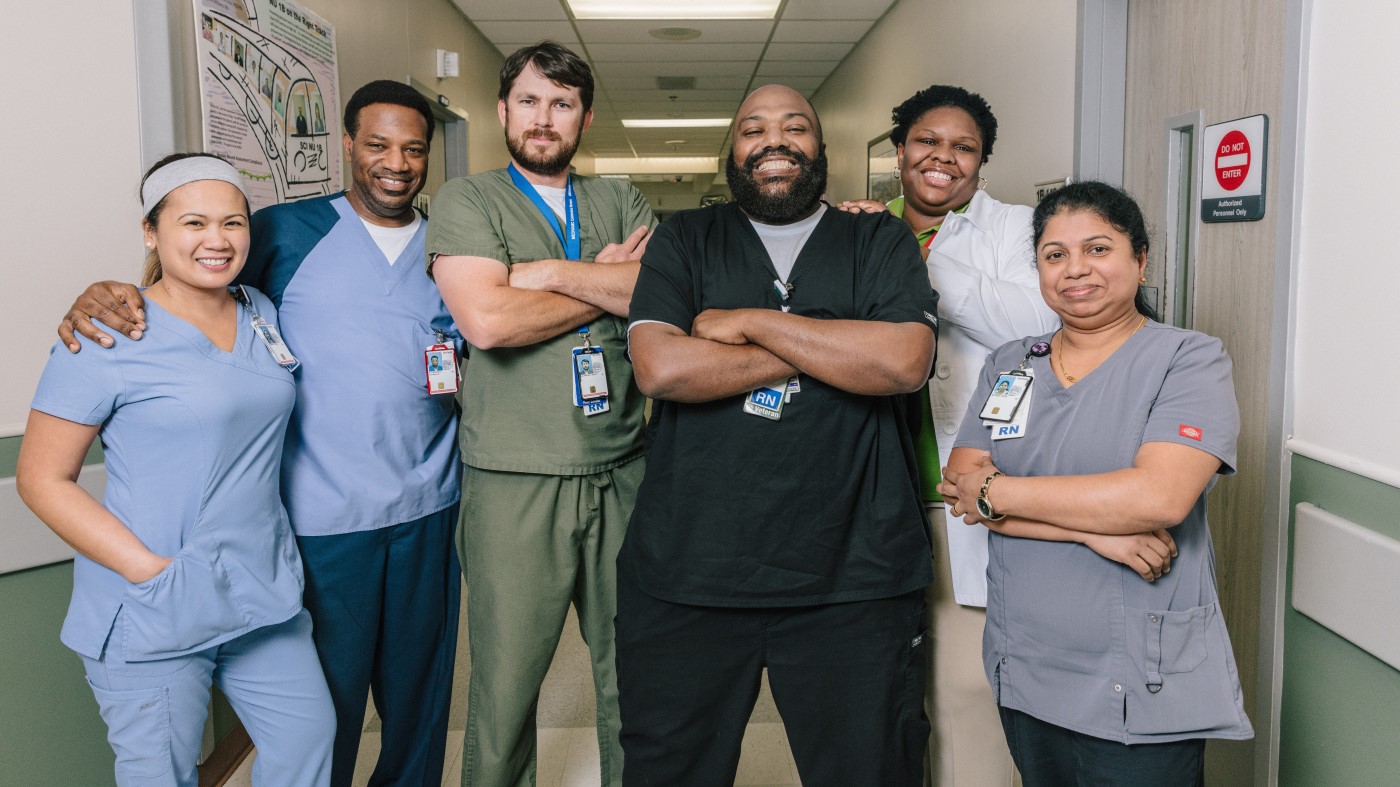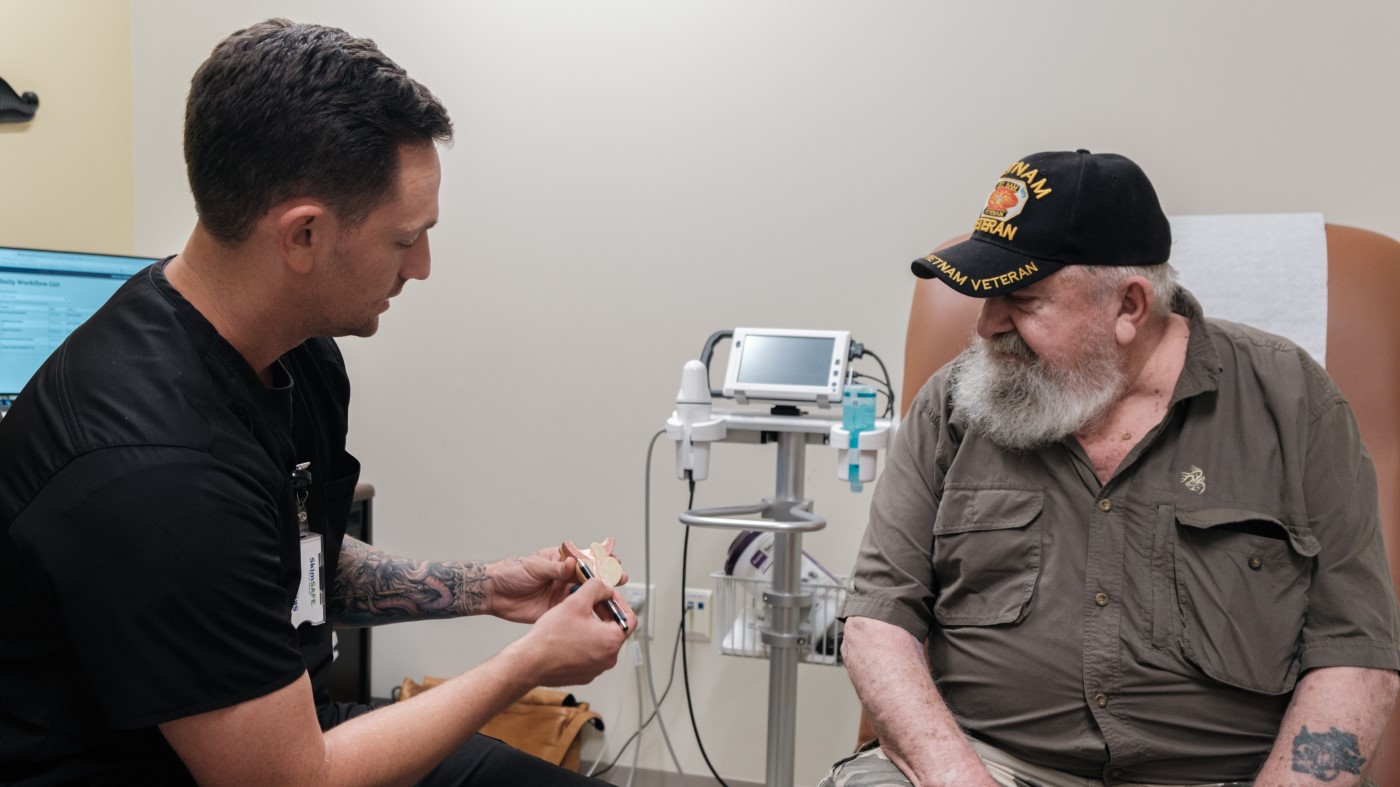At VA, we strive to optimize the health and wellbeing of Veterans living with Alzheimer’s. Veterans who’ve experienced brain trauma while in service are at a significantly higher risk for developing the disease or other forms of dementia. It’s crucial that Veterans and their families keep the following four tips in mind in the event of an Alzheimer’s diagnosis:
1. Understand your benefits. Managing Alzheimer’s can be costly, but VA’s Geriatrics and Extended Care Services (GEC) offer provisions for home-based primary care, nursing home services, caregiver support and more.
2. Learn what is and is not considered a “senior moment.” Brief confusion or memory lapses are common as you age. However, if your forgetfulness disrupts daily life or you experience “confusion with time or place,” don’t hesitate to consult your VA physician.
3. Take vitamin E. VA research suggests that daily doses of vitamin E can help preserve cognitive function. Talk to your VA physician for more info.
4. Prioritize brain health. Taking care of your brain health can prevent or at least decelerate the development of Alzheimer’s.
Through innovative research, we’re gaining a deeper understanding of the disease, its causes and risk factors; and developing better detection methods and viable drug therapies for prevention and treatment. If you’re interested in joining the effort to improve the quality of life for our aging Veterans, explore our available positions and apply today.
Topics in this story
More Stories
Providing better outcomes for diverse Veterans means finding ways to reach them, whether on a personal level or on a geographic level.
As a chief of staff, you’ll have many important responsibilities, but also an opportunity to make positive change for our team and the Veterans we serve.
As a geriatrics specialist at VA, your work will have a huge impact on Veterans as they come to rely on VA’s care as they grow older.






